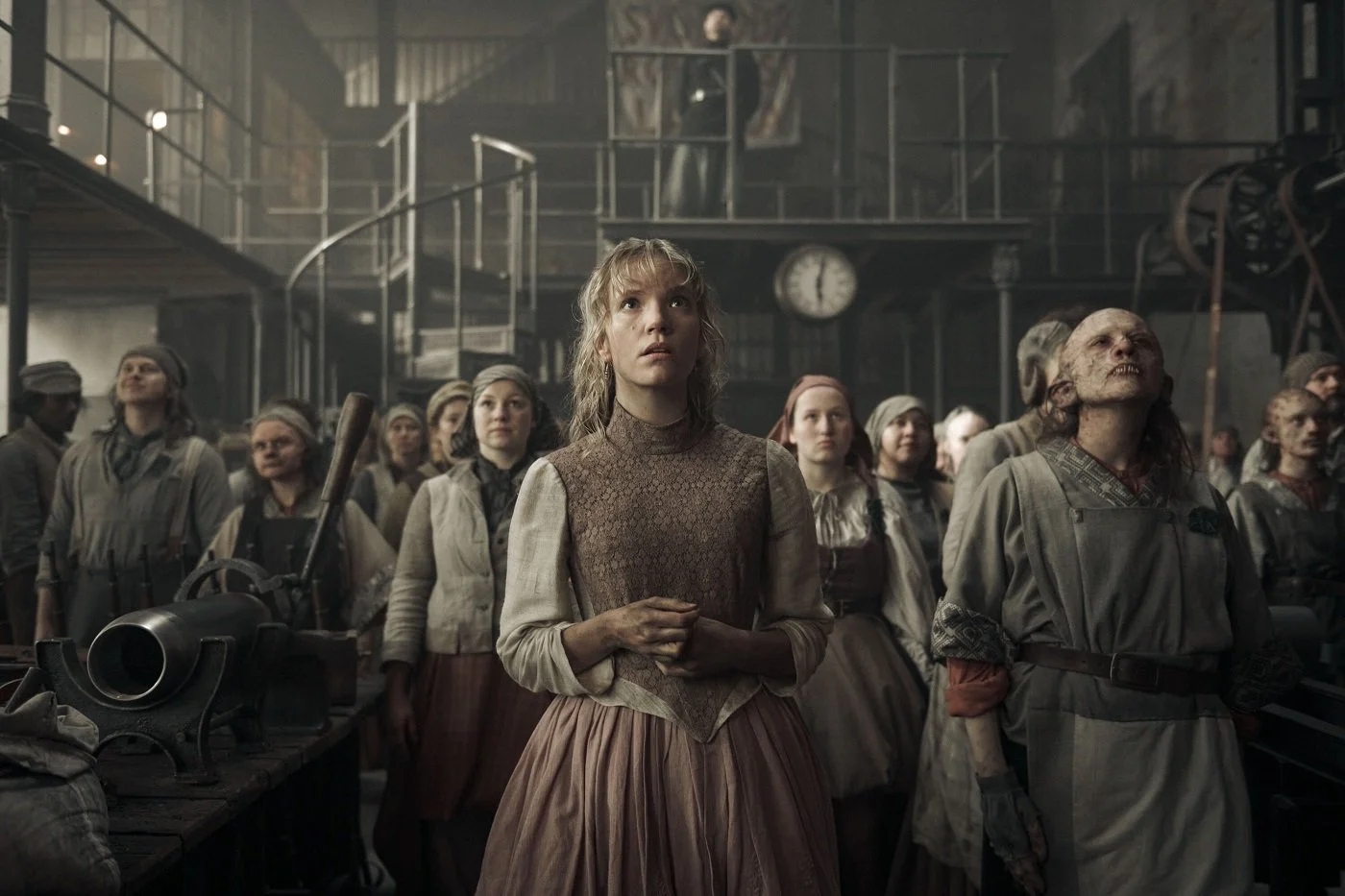IR TV Review: CARNIVAL ROW - EPISODES 3 & 4 [Prime Video-S2]
The reality of what can be understood and allowed versus the crux of the balance of right and wrong continues to affect Philo (Orlando Bloom) as his understanding of acceptance and sacrifice moves his penance or eventual demise forward with Vignette (Cara Delevingne) moving against her best wishes. Vignette desperately wants to give up the path that has been laid out for her. The question with the couple leading into Episodes 3 & 4 is, like many others, what they believe in and what dictates sides sometimes run contradictory even those the love itself might be pure. Philo, as usual, has many different plates in the air but he seems to understand the underlying politics of the situation even though he truly does not have any power to fix it.
There is a demonstration in his choice that shows a want for a better tomorrow though the influx of society seems to be moving towards chaos no matter what he does. The working element in terms of class structure is trying to incite revolution and yet there is a parallel function in the plight of Mr. Agreus (David Gyasi) and his lady Imogen Spurnrose as they are subjugated into a new standard of living. Joanne Whalley takes on an almost Twistian character with a context of socialism that is an interesting commentary on the 19th century context that motivates much of "Carnival Row". Season One though, in its context, had more of predilection of impending doom while this season is based more on internal destruction from inside and chess moves that forward the game ever so slightly.
The detective element points to an interesting internal struggle which is helped along by a Faye betrayal that is opened up in a certain way by magic. The sequence that shows this is the only one that really seems to take the action outside the comfort zone of the series (which needs to be done more often but is of course more expensive). The battles of these characters are internal while their overlords just look for brute force to solve issues. The intriguing course in that has to do with perspective which seemingly might lean too little too late as it always does. Understanding Mr. Agreus who himself is aware his persecution happens in the eyes of the beholder hardly thinks such tragedy could never befall him as long as there is money. Revenge is also a didactic action that isn't rooted in logic which makes it harder to strategize against. It is simply those little points of luck, engaged at the exact right time that can save the day. B
By Tim Wassberg



